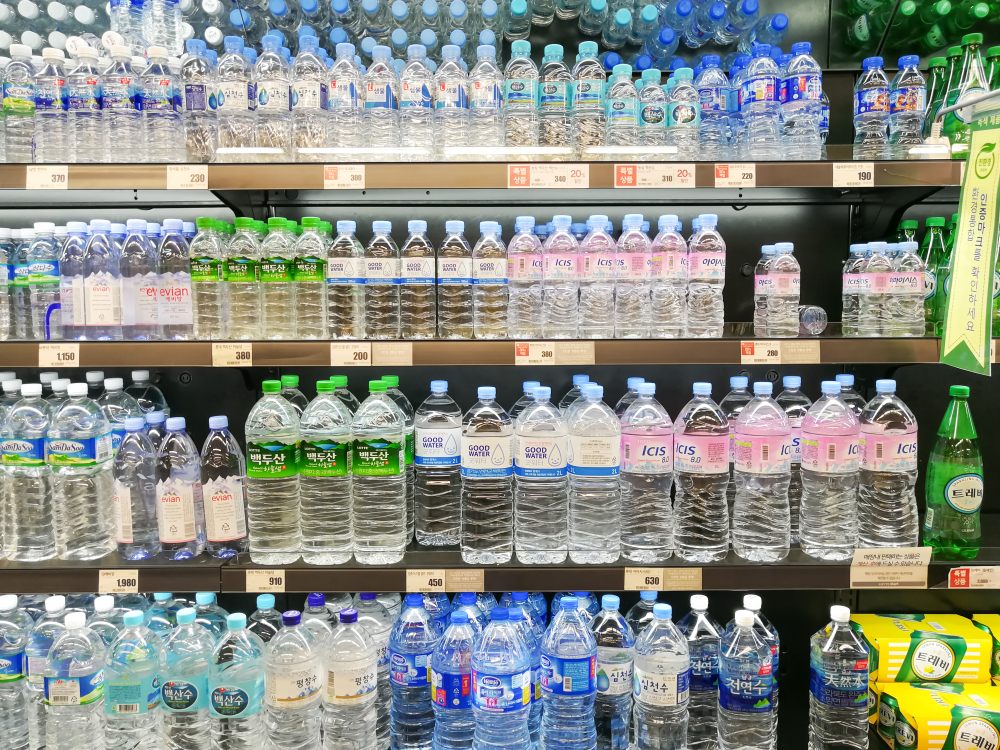![]() For many people, the start of a year is a time for new health resolutions – be it eat more vegetables, consume less sugar or drink more water.
For many people, the start of a year is a time for new health resolutions – be it eat more vegetables, consume less sugar or drink more water.
Keeping hydrated is essential for body functions such as temperature regulation, transporting nutrients and removing waste. Water even acts as a lubricant and shock absorber for joints.
But while most people know they should drink more water, it can be a bit boring. So what about sparkling water as an option to liven things up a bit? After all, sparkling water is just as good as normal water, right? Not quite.
Fizzy fluids
Sparkling water is made by infusing water with carbon dioxide. This produces carbonic acid with a weak acidic pH of between three and four. That “feel good” mouth sensation you get after sipping a carbonated drink is in fact the chemical activation of pain receptors on your tongue responding to this acid, giving a moreish taste. And here’s part of the problem, as acid in drinks can harm our teeth.

Tasty to drink but not so great for your teeth. Image Credit: Bignai/Shutterstock.com
The outer layer of our teeth, dental enamel, is the hardest tissue in the body. It is made of a mineral called hydroxyapatite that contains calcium and phosphate. Saliva is mainly water but also contains calcium and phosphate.
There is normally a balance between tooth minerals and the minerals in saliva. The mouth and saliva normally have (a pH of six to seven), but when this drops below five and a half, calcium and phosphate molecules move out of the teeth and into saliva. This can happen because of the carbonic acid in fizzy drinks.
Bad for teeth?
This demineralisation creates tiny pores in the tooth mineral and the enamel starts to dissolve. Initially, the pores are microscopic and can still be plugged by putting calcium or phosphate back in, or by replacing calcium with fluoride – this is how fluoride in toothpaste works to protect teeth. But once the amount of lost tooth mineral reaches a certain level, the pores can no longer be plugged and the tooth tissue is lost for good.
If teeth are bathed in acid from carbonated drinks frequently, more minerals can be dissolved out than get put back in, and there is more risk of tooth wear or erosion
So although plain sparkling water is better for your teeth than flavoured sodas (diet or regular) which have a lower pH, still water is best – it has a pH of around seven. Incidentally, club soda is not only carbonated but has some “minerals” added for flavour. These may include sodium, so if you are watching your salt intake you also need to be mindful of this.
Pure water
It’s also worth pointing out that sparkling water is not an appetite suppressant. Despite what you might read online , there is no strong scientific evidence to suggest that drinking sparkling water will make you feel fuller or curb your appetite. Yes, drinking carbonated water will fill up your stomach (probably making you belch too) but it won’t stay in your stomach any longer than still water.
Even when sparkling water is drunk alongside food or meals, there is no difference in how quickly the stomach will empty compared to still water. Scientifically, it is difficult to measure hunger and fullness, which means that studies investigating these are based on, or influenced by, people’s personal feelings – and naturally us humans are all very different. In fact, the European Food Safety Authority, which provides independent scientific advice on food safety, doesn’t endorse any health claims related to foods or drinks said to increase satiety.

Bottled water is big business. Image Credit: Toshio Chan/Shutterstock.com
The NHS advises drinking between six to eight glasses of fluid per day. As well as water, this can also include lower fat milk and sugar-free drinks, along with tea and coffee. Water is a healthy and cheap choice for quenching your thirst at any time. It has no calories, is free and contains no sugars that can damage teeth – unlike the myriad of sports, energy and carbonated drinks that flood supermarket shelves.
Of course, if you are swapping sugary soft drinks with sparkling water then this is a step in the right direction. Indeed, soft drinks are estimated to contribute to approximately 25% of sugar intake in adults and increase oral acidity. Most sparkling waters do not have added sugars, though some do, so always read the label.
So when it comes to trying to increase your fluid intake, still water is still the preferred option. But if a glass of water is not really your thing, sparkling water can help you stay hydrated and can be a tasty alternative to plain water – but just be mindful of how frequently you drink it for your dental health.![]()
Nicola Innes, Professor of Paediatric Dentistry, University of Dundee and Suzanne Zaremba, Lecturer in Nutrition, Centre for Public Health Nutrition Research, University of Dundee
This article is republished from The Conversation under a Creative Commons license. Read the original article.
Source Link: Is Sparkling Water Bad For You?